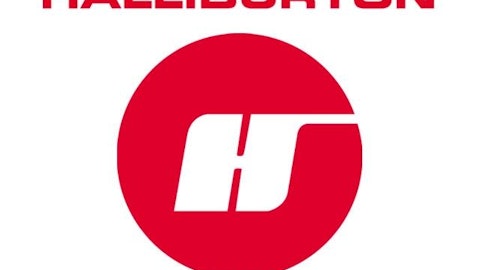When making an investment decision, investors keep a number of factors in mind: future growth, dividends, cash generation, and earnings prospects. It is often difficult to find a company with earnings you can easily predict beyond two or three years in the future. However, a little deeper research will bring a handful of companies that fulfill the criteria. If you want to invest in a company with a visible earnings growth potential, then Seadrill Ltd (NYSE:SDRL) is the obvious choice.

Offshore Drilling is the Future
The scarcity of conventional reserves has pushed energy companies offshore, prompting a massive boom in offshore drilling. Though this sector shrank to half its previous size after the Deepwater Horizon incident, it is again gathering pace. The main drivers behind the increased activity are crude prices, deepwater’s massive oil and gas reserves, and the increasingly sophisticated technology being used.
Per capita demand for oil will remain high in the U.S. for the foreseeable future, prompting the exploitation of offshore reserves to decrease dependence on the imports. While shale gas has put the U.S. in a position to become an exporter of natural gas; the country still imports 8.49 million barrels of crude everyday. Furthermore, offshore drilling is also adding substantial amount of cash to the coffers of the U.S. government. Annual federal proceeds from leases have been as high as $18 billion in the past. As a result, the government is allowing the companies to drill in the Gulf of Mexico as well as in the Arctic waters.
Recently, ConocoPhillips (NYSE:COP) made a considerable discovery in the Gulf of Mexico. Faced with declining production and reserves, ConocoPhillips’ recent discovery at its Shenandoah well will go a long way in solving its production issues. It’s one of the biggest discoveries made in the area, and ConocoPhillips (NYSE:COP) has a 30% stake in the jointly owned project.
The other outlet for offshore drilling is Arctic waters; however, this area is proving a bit problematic for the drillers. Royal Dutch Shell plc (ADR) (NYSE:RDS.A)-A) faced problems there due to failing equipment and extreme weather conditions. As a result, the company has suspended its operations in the area, and will not be drilling in the Arctic during the current year, since the region’s volatile weather leaves only a small window available for drilling. However, Royal Dutch Shell plc (ADR) (NYSE:RDS.A)’s massive operations will offset any hit to its production from this area, and the company will come out of it relatively unscathed.
An increase in drilling activity has increased the number of rigs these companies are building, which might become a problem in the future. Consider a similar example in another sector: Before the recession, the shipping industry was prospering. But when its glut of new ships met dwindling business in the wake of the 2008 financial crisis, the industry nearly sank.



